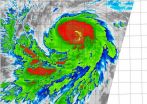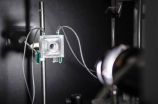(Press-News.org) Are some people immune to hangovers, and can eating or drinking water after heavy drinking prevent a hangover? The answers appear to be 'no' and 'no' according to new research presented the ECNP conference in Amsterdam.
Excessive alcohol consumption has familiar consequences, many of them quite damaging. If a person does not experience a hangover - and 25% to 30% of drinkers regularly claim this - they may be more likely to continue drinking, so good research into the outcomes of drinking to excess is needed.
A group of international researchers from the Netherlands and Canada have surveyed drinking habits to see what can be understood about 'the morning after'.
789 Canadian students were surveyed about their drinking in the previous month, and questioned about the number of drinks, the timeframe of consumption, and the severity of their hangover. The researchers calculated the estimated Blood Alcohol Concentration in those who experienced hangovers and those who didn't. In fact, four-fifths (79%) of those who claimed not to experience hangovers had an estimated blood alcohol level of less than 0.10% (*see note below).
According to lead author Dr Joris Verster (Utrecht University);
'We have been working with Canadian and Dutch students on this issue. In general, we found a pretty straight relationship; the more you drink, the more likely you are to get a hangover. The majority of those who in fact reported never having a hangover tended to drink less, perhaps less than they themselves thought would lead to a hangover'.
In a further refinement, the group looked at whether eating or drinking water directly after drinking alcohol made you less likely to experience a hangover. They questioned 826 Dutch students on their latest heavy drinking session, and whether they had food or water after the alcohol. 449 students (54.4%) ate after drinking. The students were asked to rate their hangover (from absent to extreme). In fact, hangover severity was not very different between the two groups.
As Joris Verster said
'Those who took food or water showed a slight statistical improvement in how they felt over those who didn't, but this didn't really translate into a meaningful difference. From what we know from the surveys so far, the only practical way to avoid a hangover is to drink less alcohol'.
He added 'These are early questionnaire-based studies, and are amongst the first of their kind. This means they have limitations, but they do give us an indication of what happens. Our next step is to move forward with more controlled trials'.
Commenting for the ECNP, Dr Michael Bloomfield (University College, London) said:
"Throughout the world the economic and social costs of alcohol abuse run into hundreds of billions of euros per year. It's therefore very important to answer simple questions like 'how do you avoid a hangover?' Whilst further research is needed, this new research tells us that the answer is simple - 'drink less'."
*This is around twice the safe driving limits of 0.05% in many European countries such as the Netherlands, France and Germany. England and Wales, and many states in the USA, have a 0.08% limit. For European figures, see http://etsc.eu/blood-alcohol-content-bac-drink-driving-limits-across-europe/.
INFORMATION:
Tropical Storm Erika was centered in the Eastern Caribbean Sea and affecting Puerto Rico and Hispaniola when NASA's Terra satellite passed overhead mid-day on Friday, August 28, 2015. Two hours after Terra passed, NOAA's GOES-East satellite saw Erika's western side over the Dominican Republic.
At 15:05 UTC (11:05 a.m. EDT) the Moderate Resolution Imaging Spectroradiometer instrument aboard NASA's Terra satellite captured a visible light image Tropical Storm Erika approaching Hispaniola. Erika's center was in the eastern Caribbean Sea, and the northern quadrant of the ...
To understand how confidence in parenting may predict parenting behaviors in women who were abused as children, psychologists at the University of Rochester have found that mothers who experienced more types of maltreatment as children are more critical of their ability to parent successfully. Intervention programs for moms at-risk, therefore, should focus on bolstering mothers' self-confidence--not just teach parenting skills, the researchers said.
"We know that maltreated children can have really low self-esteem," said Louisa Michl, a doctoral student in the department ...
A simple change in the wording of a traffic sign - from "Share the Road" to "Bicycles May Use Full Lane" - could help clarify the rules of the road for bicyclists and motorists, according to a North Carolina State University study.
"'Share the Road' signs are common but what that means in terms of how drivers and bicycle riders should interact can be ambiguous," says George Hess, natural resources professor and co-author of the study in PLOS One. Some bicyclists complain that motorists consider them to be in the way, while some motorists accuse bicyclists of hogging ...
Consider the pendulum of a grandfather clock. If you forget to wind it, you will eventually find the pendulum at rest, unmoving. However, this simple observation is only valid at the level of classical physics--the laws and principles that appear to explain the physics of relatively large objects at human scale. However, quantum mechanics, the underlying physical rules that govern the fundamental behavior of matter and light at the atomic scale, state that nothing can quite be completely at rest.
For the first time, a team of Caltech researchers and collaborators has ...
Washington DC - August 28, 2015 - Oysters not only transmit human norovirus; they also serve as a major reservoir for these pathogens, according to research published August 28 in Applied and Environmental Microbiology, a journal of the American Society for Microbiology. "More than 80 percent of human norovirus genotypes were detected in oyster samples or oyster-related outbreaks," said corresponding author Yongjie Wang, PhD.
"The results highlight oysters' important role in the persistence of norovirus in the environment, and its transmission to humans, and they demonstrate ...
NASA-NOAA's Suomi NPP satellite flew over Hurricane Jimena in the Eastern Pacific and saw the strongest thunderstorms building up quickly, especially in the northern quadrant of the storm. Jimena intensified rapidly overnight on August 27 and early August 28 and the National Hurricane Center expects it to become a major hurricane.
The Visible Infrared Imaging Radiometer Suite or VIIRS instrument aboard the satellite provided infrared data of the storm that showed the coldest cloud top temperatures, which indicate the strongest thunderstorms were in Jimena's northern ...
Generating and storing renewable energy, such as solar or wind power, is a key barrier to a clean-energy economy. When the Joint Center for Artificial Photosynthesis (JCAP) was established at Caltech and its partnering institutions in 2010, the U.S. Department of Energy (DOE) Energy Innovation Hub had one main goal: a cost-effective method of producing fuels using only sunlight, water, and carbon dioxide, mimicking the natural process of photosynthesis in plants and storing energy in the form of chemical fuels for use on demand. Over the past five years, researchers at ...
If you think that performing CPR on a person whose heart has stopped is a surefire way to save their life, you may be watching too much TV.
The truth is more depressing than fiction, according to a new study by University of Southern California Davis School of Gerontology researchers. While medical dramas Grey's Anatomy and House show cardiopulmonary resuscitation saving a patient's life nearly 70 percent of the time, the real immediate survival rate is nearly half that - around 37 percent.
Researchers also found another discrepancy between reality and TV: Half of ...
TAMPA, Fla. - Pancreatic cancer is the fourth most common cause of cancer-related death in the United States and has a 5-year survival rate of only 6 percent, which is the lowest rate of all types of cancer according to the American Cancer Society. This low survival rate is partially attributed to the difficulty in detecting pancreatic cancer at an early stage. According to a new 'proof of principle' study published in Aug. 27 issue of Cancer Prevention Research, Moffitt Cancer Center researchers hope to improve pancreatic cancer survival rates by identifying markers in ...
Beach sand contains all kinds of microorganisms, including those that can harm human health. Yet current guidelines are focused exclusively on monitoring the levels of microbes in the water.
Now, an international panel of scientists is recommending monitoring the sand at recreational beaches, to minimize health risks for beachgoers. Their advice is based on the general consensus reached during the international conference "Trends in Environmental Microbiology and Public Health," held in Lisbon Portugal in September 2014.
"Beach sands accumulate contaminants and people ...


